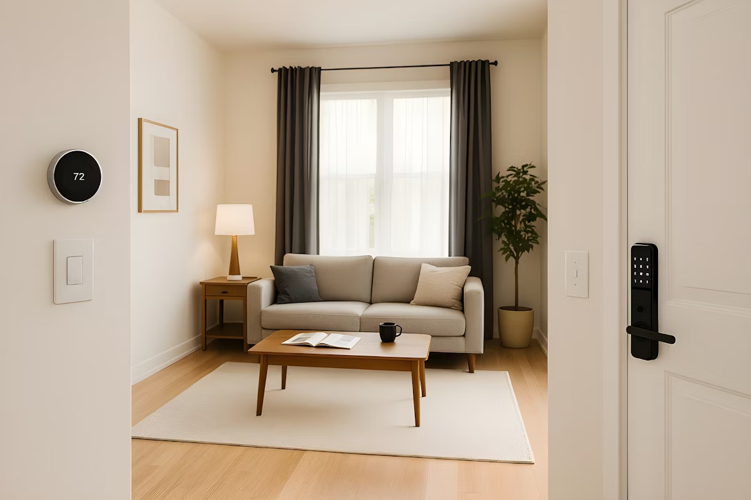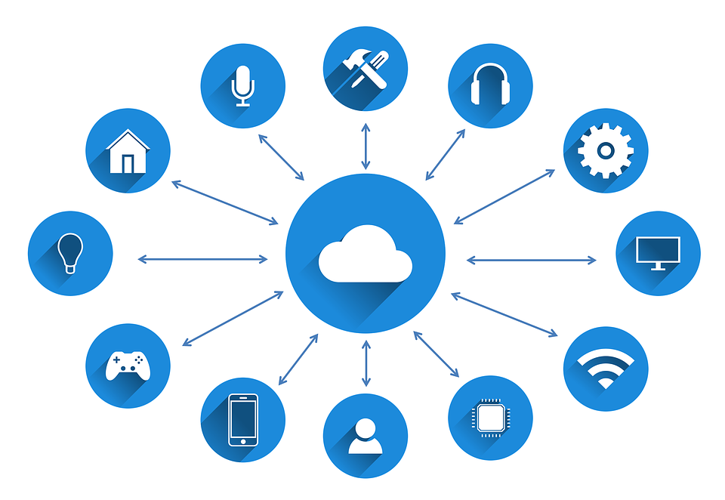In today’s connected world, home safety is no longer limited to locks, alarms, and cameras. Modern households are embracing smart devices that add extra layers of protection and convenience. One essential innovation in this area is the smart gas leak detector with WiFi. These devices provide real-time monitoring, early warnings, and seamless integration with smart living systems, making them indispensable for homeowners who value safety and modern comfort.

Why a Smart Home Gas Detector is Essential
Gas leaks are invisible, odorless in some cases, and can be life-threatening if not detected early. A small leak can lead to fire hazards, poisoning, or even explosions. While traditional detectors serve a purpose, they often lack advanced communication and integration features. This is where a smart home gas detector plays a vital role.
The Dangers of Undetected Gas Leaks
Health risks: Prolonged exposure to leaking gases can cause nausea, headaches, breathing difficulties, and more severe conditions.
Property damage: A leak left unnoticed could ignite and cause significant destruction to homes.
Financial losses: Repairs, hospital bills, and property damage often result in major expenses after an incident.
According to the National Fire Protection Association (NFPA), U.S. fire departments respond to an average of 125,000 home fires involving natural gas or LP-gas each year, resulting in dozens of fatalities, hundreds of injuries, and over $500 million in direct property damage. Many of these incidents were caused by leaks that went undetected until it was too late. By installing a smart home gas detector with WiFi, homeowners can dramatically reduce the chances of being part of these statistics.
A smart device ensures that you are alerted instantly, reducing the chances of such dangers turning into disasters. In fact, one U.S. homeowner shared on Reddit that his smart detector warned him of a leak while he was away from home. Using his phone, he remotely shut off the gas line through his smart home system—avoiding what could have been a costly and dangerous accident.
Features of a Smart Gas Detector with WiFi
Smart technology has transformed the way gas detectors work. Instead of just sounding an alarm in the house, these advanced devices offer connected features that increase reliability and user control.
Real-time alerts: With WiFi connectivity, the detector can send instant alerts to your smartphone or other connected devices.
Remote monitoring: You can monitor your home from anywhere in the world through mobile apps.
Integration with smart home systems: These detectors can connect with smart locks, cameras, or automated fans.
Accurate sensors: Sensitive sensors can detect natural gas, propane, methane, and carbon monoxide.

Benefits of Using a Smart Home Gas Detector
Enhanced safety: WiFi-enabled alerts mean you never have to rely solely on hearing a sound alarm. In my own experience testing an entry-level smart detector, I realized the biggest benefit was the instant phone notification—especially when I was away from home. That extra assurance made the investment feel worthwhile.
Peace of mind: 24/7 monitoring provides security whether you are home or away.
Cost savings over time. Preventing a single incident can avoid thousands in repair bills and medical expenses.
Simple setup. Most models are designed for easy installation, often requiring just a standard outlet or USB power connection.
Choosing the Best Smart Home Gas Detector
When selecting a smart home gas detector with WiFi, consider the following:
Sensitivity and accuracy: Detects even small leaks and reduces false alarms.
Connectivity and compatibility: Stable WiFi and compatibility with smart home systems.
Power options: Choose between battery-operated or plug-in models depending on your needs.
Ease of alerts: Ensure multiple alert systems such as alarms, phone notifications, and voice assistants.
Certifications: Look for UL-listed detectors or those compliant with NFPA 720 standards.
Quick Comparison: Traditional vs Smart Detectors
Feature | Traditional Detector | Smart Detector with WiFi |
Alerts | Local alarm only | Alarm + smartphone + voice assistant |
Remote Monitoring | No | Yes, real-time via app |
Smart Integration | None | Works with HVAC, fans, locks |
Sensor Coverage | Limited | Multi-gas (methane, propane, CO) |
Power Options | Battery only | Battery + plug-in options |
Cost | Lower upfront | Higher upfront, long-term savings |
Which Detector Fits Your Home?
Apartments or small homes: One WiFi-enabled detector near the kitchen or heating appliances is usually enough. Price range: $60–$90.
Large or multi-level houses: A network of detectors provides complete coverage. Price range: $100–$150 per unit.
Budget option: Traditional detectors cost $20–$40 but lack smart features.
Smart Gas Detectors for Modern Living
Convenience through automation: A detector can trigger ventilation systems automatically.
Protection for families and vulnerable groups: Automated notifications safeguard children, elderly, and pets.
Multi-room monitoring: Some models connect across multiple rooms or floors.
Placement Tip
Even the best detector will not perform well if installed incorrectly. Place units near stoves, furnaces, and water heaters, and avoid corners or enclosed spaces.
Typical Placement Guide
Kitchen: Near the stove or oven, at least 5 feet away to avoid false alarms.
Basement or utility room: Close to furnaces, boilers, or water heaters.
Garage: Recommended if you have propane tanks, gas-powered tools, or vehicles.
Hallways or bedrooms: Place near sleeping areas so alerts are heard at night.
Position at breathing height for carbon monoxide, and near ceilings for lighter gases like methane. Multiple detectors ensure comprehensive coverage.
The Future of Smart Home Safety
Smart detectors are evolving with:
AI-driven detection systems to distinguish real threats from false alarms.
Predictive alerts that provide early warnings.
Integration with emergency services for faster response.
Eco-friendly designs with low-energy sensors and recyclable materials.
By choosing the right smart gas detector today, you prepare your household for these future trends.
Recommended Smart Gas Detectors for Home Use
If you’re ready to add an extra layer of protection, here are two reliable options:
Gas Dog WiFi Gas Leak Monitor (Model GD1000-GS91)
Detects methane (CH₄), LPG, and natural gas
Real-time alerts with sound, light, and mobile app notifications
Tuya App integration for automation
Wall-mounted, compact design (55 × 55 × 30 mm)
Alarm volume ≥70dB for reliable alerts
Best for kitchens, basements, or utility rooms

Higher-End Option (multi-gas with CO detection)
Detects natural gas, propane, methane, and carbon monoxide
Supports multi-room monitoring and broader coverage
Ideal for larger homes or families seeking whole-home safety
Price range: $100–$150 per unit
A smart home gas detector with WiFi is more than just a safety device—it is a vital component of modern smart living. After trying one in my own apartment, I was surprised by how seamlessly it blended into daily life—quietly monitoring in the background, but ready to alert me the moment something went wrong. By combining real-time alerts, remote monitoring, and integration with smart systems, these detectors ensure maximum protection for your home and loved ones.
With the right device, proper placement, and regular testing, your smart home gas detector can provide reliable protection for years—keeping your home safer, smarter, and more resilient. If you’re considering upgrading your home safety system, why not start with a smart gas detector? It’s compact, affordable, and offers tremendous peace of mind.





(0) comments
We welcome your comments
Log In
Post a comment as Guest
Keep it Clean. Please avoid obscene, vulgar, lewd, racist or sexually-oriented language.
PLEASE TURN OFF YOUR CAPS LOCK.
Don't Threaten. Threats of harming another person will not be tolerated.
Be Truthful. Don't knowingly lie about anyone or anything.
Be Nice. No racism, sexism or any sort of -ism that is degrading to another person.
Be Proactive. Use the 'Report' link on each comment to let us know of abusive posts.
Share with Us. We'd love to hear eyewitness accounts, the history behind an article.